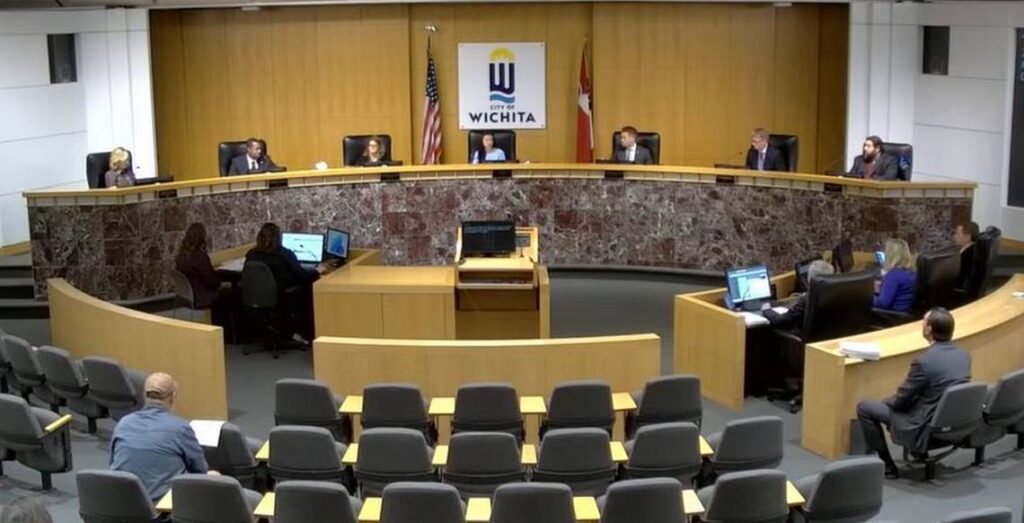In recent articles published by the Wichita Eagle, journalists have focused on the ethical implications surrounding the acceptance of gifts by Wichita City Council members, particularly following the recent amendment to local ethics ordinances that allows for greater leeway in accepting gifts. The council is now permitted to approve gifts exceeding the previously established limit of $150. While this change was decided through a majority vote, the details surrounding these gifts are often obscured in council agenda packets. In these documents, gifts are not specifically listed as such but are instead masked as travel requests that lack the necessary details, such as donor names, funding sources, estimated values, and the specific expenses covered. Consequently, the average citizen may be unaware that voting to approve these travel requests effectively permits council members to bypass the established gift limit.
Mayor Lily Wu has expressed a desire for increased transparency in reporting council-related travel expenses and has advocated for the inclusion of funding sources in future agenda items. Wu emphasized that clear disclosure regarding who finances these trips is critical, not only for transparency but also for rebuilding public trust in local government. Vice Mayor Maggie Ballard echoed this sentiment, suggesting that many citizens do not have the opportunity to witness council meetings, thus missing critical information about whom taxpayers are effectively subsidizing. The lack of clarity surrounding the discussion of travel-related expenses could lead to misinformation about whether taxpayer funds are used for such trips. As it stands, considerable details concerning who funds council members’ travel are often revealed only during meetings when they are discussed verbally.
The root of this situation can be traced back to past practice and relaxation of regulations regarding council gifts, particularly since a 2019 investigation highlighted ethical concerns under the former administration. Under previous Mayor Brandon Whipple, an ethics policy setting a $150 limit on gifts was established, but a loophole allowing exceptions through council votes has led to ongoing discussions about the appropriateness of such practices. The council has come under scrutiny for potentially conflicting perceptions of gift acceptance, especially following incidents involving former officials who failed to report gifts accurately. As such, the current framework is aimed at addressing both accountability and transparency, but its implementation remains inconsistent.
Council members have continued to accept travel gifts from various sources, including international organizations and governmental entities. This trend heightened following the indictment of New York Mayor Eric Adams, which drew attention to the ethical boundaries concerning travel stipends and gifts. Mayor Wu herself has engaged in travel provided by external entities, including a trip to Switzerland funded by the Swiss government. Wu, who maintains that these trips do not influence her decisions, argues that they offer valuable opportunities to gain insight on municipal issues. However, critics underline the need for clearer communication regarding these arrangements to avoid misunderstandings about potential conflicts of interest.
In addition to Wu, other council members have similarly embarked on trips funded by either governmental or organizational entities, leading to differing interpretations of whether these arrangements constitute gifts. For instance, council member Dalton Glasscock is participating in an exchange program largely funded by the U.S. Department of State, while member Becky Tuttle plans to attend a convention funded in part by the Greater Wichita Partnership. With Tuttle asserting that her travels are not gifts but professional duties representing the city, the line between government-sponsored events and personal gifts remains ambiguous.
The ongoing discussions around travel and gift ethics highlight a broader question regarding the transparency and accountability of local government practices. While the current council members have acknowledged the issue and expressed a willingness to revise the reporting of gifts on the agenda, tangible changes have yet to materialize. Mayor Wu’s aspirations for a more transparent governance structure resonate amid the growing calls for increased scrutiny over public officials’ interactions with external funders. Urging for clarity in the reporting process is a pivotal step towards not only aligning with the principles of ethical governance but also rebuilding the public trust in local government that has been eroded over time.

